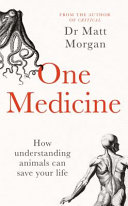

Most ebook files are in PDF format, so you can easily read them using various software such as Foxit Reader or directly on the Google Chrome browser.
Some ebook files are released by publishers in other formats such as .awz, .mobi, .epub, .fb2, etc. You may need to install specific software to read these formats on mobile/PC, such as Calibre.
Please read the tutorial at this link: https://ebookbell.com/faq
We offer FREE conversion to the popular formats you request; however, this may take some time. Therefore, right after payment, please email us, and we will try to provide the service as quickly as possible.
For some exceptional file formats or broken links (if any), please refrain from opening any disputes. Instead, email us first, and we will try to assist within a maximum of 6 hours.
EbookBell Team

4.0
96 reviewsIt all started with a Hob Nob. As Dr Matt Morgan, an intensive care consultant, examined a patient who had suffered a cardiac arrest after inhaling some biscuit crumbs, he saw a flock of birds fly past the window. They must inhale objects all the time when flying, how do they survive? he thought to himself. This began an investigation that spanned continents, species and millennia.
For animal science has so much to teach us about human medicine. While some of the overlaps and parallels are obvious – we know how much DNA we share with primates, the first pig heart has been transplanted into a human – there is so much more that we have learnt from the animal world. For example, studying kangaroos, in particular the female’s three vaginas, has improved in-vitro fertilisation success rates. Watching how a giraffe breathes can help save the life of someone struggling with asthma. Investigating why birds that live in the frozen Arctic circle don’t freeze to death led to advances with treating hypothermia. Getting a ECG on the 150kg heart of a humpback whale was instrumental to keeping patients with cardiac failure living longer.
We owe animals so much, it’s time to focus on examining how they live and what we still have to learn from them. Better shared understanding of how our species coexists with millions of others can lead to untold medical advances, help both humans and animals and improve the world for all creatures from single-celled bacteria to a 30,000 kg whale. Who knows, maybe a kiss from a frog will save your life?